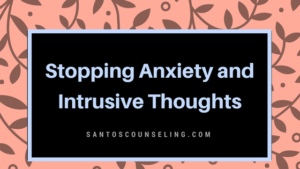Trauma-Informed Therapists In Greensboro, NC
When trauma is not affective navigated, it can lead to a person feeling that certain emotional needs are unmet and there is an ongoing challenge with regulating emotions. Resolving the emotional need that is underneath the trauma includes somatic and emotional work. This allows you to create a new positive experience and move forward effectively in life.
Understanding trauma and utilizing effective coping strategies can pave the way for healing and growth. In this blog post, we will explore what trauma is, its impact on mental health, and strategies for navigating its effects.
What Is Trauma?
Let’s start with understanding trauma. Trauma can be defined as both an emotional and physical response to a threat or distressing event. If you have experienced a trauma in life, you may have noticed a physical and emotional response. Common emotional and physical symptoms from trauma include muscle tension, rapid heart rate, feeling overwhelmed, feeling uneasy, numb, not being able to move, wanting to run or escape, and other unwanted symptoms.
- Acute trauma: Events like car accidents, a serious health diagnoses, or being a victim of physical assault can lead to acute trauma. This type of trauma is triggered by single event. Click here to read more on acute trauma.
- Chronic trauma: When a person is exposed to a traumatic event that is repetitive and prolonged they experience what is known as a chronic trauma. Examples of chronic trauma include childhood abuse, being a prisoner of war, or repetitive exposure as a military combat personal.
- Complex trauma: Multiple traumatic events like childhood abuse or experiencing multiple types of trauma can lead to complex trauma. This type of trauma is often interpersonal in nature and occurs over time.
It’s important to keep in mind that each person will have their own response to trauma. What you may see as trauma may differ from someone else. This does not mean that one is valid and the other is not. A persons traumatic response is typically influenced by factors such as resilience, personality, and support systems.
As you work with a counselor, you’ll gain further knowledge to understand your trauma. This knowledge aims to build a sense of empowerment and resilience to support the healing and growth process. For many, recognizing the different types of trauma can be the first step in understanding its impact and beginning the growth process.
4 Key Ways Trauma Can Impact Mental Health
Let’s first start by brining attention that there are more than four ways. The purpose of sharing four is to bring attention to some of the key ways that trauma can impact your mental health and develop steps to navigate the healing and growth process. Untreated trauma can impact a persons mental, emotional, and physical well-being.
1. Emotional Symptoms
If you have experienced a trauma in life, I want you to think about the emotional symptoms that you experienced. Trauma often brings intense emotions such as fear, sadness, anger, or guilt. Living with trauma can lead people to experience mood swings or feel emotionally numb.
Common emotional symptoms of trauma:
- Anger.
- Guilt.
- Feel shocked.
- Worry.
- Denial.
- Feeling sad.
- Feeling hopeless.
- Feeling detached from others.
2. Cognitive Changes
On a cognitive level, a persons trauma can affect their thought patterns. This can lead to experiencing intrusive thoughts or flashbacks about the traumatic experience. Almost as if it were a movie playing in your mind. ,
Common cognitive symptoms of trauma:
- Difficulty concentrating.
- Holding a new negative beliefs about themselves or the world.
- Thinking that they are not safe.
- Difficulty recalling important details of the traumatic event.
- Having trouble focusing.
- Having a lack of clarity in thinking.
3. Physical Symptoms
On a physical level, people can begin to experience symptoms upon the onset of the trauma and ongoing. The physical symptoms can be associated with triggers. Such as when a person is having a memory about the trauma or exposed to a place that resembles that of the trauma. This can lead to an array physical symptoms.
Common physical symptoms of trauma:
- Headaches
- Muscle tension.
- Digestive issues.
- Tiredness and fatigue.
- The body’s in a fight, flight, or freeze response.
- Difficulty sleeping.
- Being easily startled.
- High blood pressure
4. Behavioral Changes
On a behavioral level, trauma can lead a person to shift how they are living there life. The behavioral change is due to the person not wanting to re-experience symptoms similar to the trauma as that would likely cause unwanted symptoms on a physical, emotional, and cognitive level.
Common behavioral symptoms of trauma:
- Avoidance behaviors of people, places, or things that are associated to the trauma.
- Withdrawal from people.
- Decreasing engagement in things that they were doing before the trauma.
- Using unhealthy coping skills.
As you read over the 4 key ways that trauma can impact your mental health please take a moment to give yourself love and compassion. Trauma is truly an experience that can impact a person on multiple levels. Working with a counselor can give you a space to address the unwanted symptoms, develop healthy coping skills, and navigate the healing and growth process of trauma.
3 Steps for Navigating Trauma
As you begin or perhaps continue your healing process know that it is yours. You can work with your counselor at Santos Counseling to navigate the healing process in a manner that makes sense to you. I encourage you to include time, patience, and self-compassion in your trauma healing and growth process. Here are four key steps to navigate its effects:
1. Acknowledge and Validate Your Feelings
Healing and growth take place when you take a moment to slow down. To pause and breathe. To witness who you are and how you are living your life. Instead of minimize your experience, I encourage you to acknowledge what you experienced and validate your feelings without judgement.
- Start by accepting your emotions: You can do this by using a journal or pausing for five minutes. During this time listen to your thoughts, feel your body, and accept your emotions without judgment. Recognize that your feelings are a natural response to a traumatic event.
- Seek validation: Reach out to your support system and slowly work to share your experience. This does not mean that you need to tell everyone what you have experienced. Instead, find those that makes sense to you. Sharing your story can be a therapeutic, affirming, and healing process. 2. Seek Professional Help
Working with a counselor can provide you with a safe space to process trauma and develop healthy coping strategies. At Santos Counseling, our counselors are trained in therapeutic approaches that hold clinical evidence in their effectiveness with trauma. A few include:
- Cognitive Behavioral Therapy (CBT): This approach is known to help identify and reframe negative thought patterns. Click here to learn more about CBT and trauma therapy.
- Mindfulness: This approach provides space to processing and integrating somatic and emotional work. Click here to learn more about mindfulness and trauma therapy.
- Somatic Therapy: Focuses on releasing trauma stored in the body. Click here to learn more about somatic therapy.
All of the counselors at Santos Counseling are licensed mental health professional that can guide you in finding the right approach for your needs.
3. Practice Self-Care
Self-care is a important component of trauma recovery. As such, it must be included in every step of the trauma healing and growth process. Engage in physical activities that promote well-being, such as:
- Mindful Movement: This includes physical practices like meditation or yoga. Both can help ground you in the present moment and reduce symptoms associated to trauma.
- Physical activity: Engage in regular exercise to support the process of releasing endorphin. The release of endorphins can help with improving mood and decreasing stress. To learn more about the feel good hormones listen to the podcast episode on activating the feel good hormones or read our blog post on the topic by clicking here






